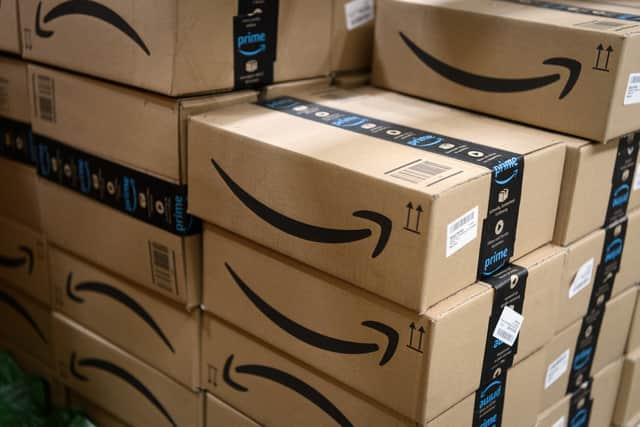The bustling town of Aylesbury is bracing itself for significant travel disruptions as a crucial thoroughfare into the town is […]
As we approach Amazon Prime Day 2024, the excitement is palpable. Shoppers around the world are eager to snap up incredible deals on everything from electronics to household goods. However, amid the frensy, it’s crucial to remain vigilant and watch out for scams that can turn your shopping spree into a nightmare. Experts warn that the old adage holds true: if it sounds too good to be true, it probably is. Below, we delve into the various scams you should be aware of this Prime Day.
Phishing Emails
One of the most common scams during Prime Day revolves around phishing emails. These deceptive messages often mimic official Amazon communications and can be incredibly convincing. They may include links to fake websites designed to steal your login credentials and personal information. Experts advise double-checking the sender's email address and looking for any irregularities before clicking on links or providing any information. Always navigate to the official Amazon website manually, rather than clicking on suspicious links.
Fake Websites
Scammers frequently set up fake websites that look almost identical to Amazon's official site. These fraudulent sites entice users with unbelievable deals. Once you input your credit card information, it is immediately stolen, and you receive nothing in return. To avoid this, ensure that the URL starts with "https://" and features Amazon’s correct web address. Bookmarking the legitimate Amazon site and using only that link can help you avoid falling into this trap.
Counterfeit Goods

Source: https://www.scotsman.com/news/crime/amazon-prime-day-scam-advice-expert-4702346
With the allure of deep discounts, counterfeit goods tend to proliferate during Prime Day. These items are often of subpar quality and can sometimes be dangerous. Always check seller ratings and reviews before making a purchase. Buying directly from Amazon or trusted third-party sellers can help mitigate the risk of receiving counterfeit products.
Poor-Quality Third-Party Sellers
Not all third-party sellers are created equal. Some may promise genuine products but deliver poor-quality imitations. This is especially prevalent in categories like electronics and branded apparel. Scrutinise the seller’s feedback score and read through customer reviews to gauge their reliability. Amazon’s A-to-Z Guarantee can offer some protection, but it's always better to be cautious from the outset.
Fake Social Media Promotions
Social media platforms are fertile ground for scammers seeking to exploit Prime Day shoppers. Fake promotions and giveaways are commonly posted to lure unsuspecting individuals into providing personal information or purchasing through fraudulent links. Verify the authenticity of social media pages by checking for verified badges and cross-referencing with official Amazon channels.
Delivery and Refund Scams
Post-purchase scams are also something to be wary of. Fraudsters may contact you claiming there was an issue with your delivery or request additional payment for expedited shipping. They might also pose as customer service representatives asking for personal details to process a refund. Always verify such requests through Amazon’s official customer service channels.
Protecting Yourself
Vigilance is your best defense against these scams. Utilise two-factor authentication on your Amazon account, avoid unsolicited offers, and keep your antivirus software up to date. If you're ever uncertain about the legitimacy of a deal or communication, err on the side of caution. Remember, if it sounds too good to be true, it probably is.
By staying informed and cautious, you can enjoy the benefits of Amazon Prime Day without falling victim to scams. Happy shopping!